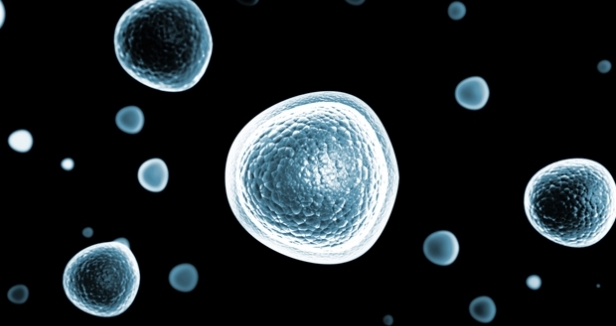Health Today
MIT confirms link between inflammation, cancer


Chronic inflammation of the intenstine or stomach can damage DNA, increasing the risk of cances, MIT scientists have confirmed.
The researchers published evidence of the long- suspected link in the June 2 online issue of the Journal of Clinical Investigation (JCI).
In two studies, the researchers found that chronic inflammation accelerated tumor formation in mice lacking the ability to repair DNA damage.
¨it`s something that was expected but it was never formally proven, “said Lisiane Meira, research scientist in MIT’s Center for Environmental Health Sciences (CEHS) and lead author of the paper.
The results of this work suggest that people with decreased ability to repair DNA damage might be more susceptible to developing cancer associated with chronic inflammation such as ulcerative colitis, Meira said.
Inflammation caused by infectious agents such as Helicobacter pylori and Hepatitis C is known to increase the risk of stomach and liver cancers, respectively. Researchers have long known that inflammation produces cytokines (immune response chemicals that encourage cell proliferation and suppress cell death), which can lead to cancer.
In addition, it was suspected that another effect of the inflammation pathway could also induce cancer. During the inflammatory response to infection, immune cells such as macrophages and neutrophils release reactive oxygen and nitrogen species that can damage DNA.
Under normal circumstances, the DNA damage induced during an inflammatory response is repaired by DNA repair systems. But, if the DNA repair system is not functioning properly, that damage can induce mutations that can lead to cancer, according to the new study.
Every individual has variations in the effectiveness of their DNA repair systems, which could help doctors figure out which patients are most susceptible to inflammation-induced cancers.
"That variation could influence the susceptibility of individuals and how they are going to respond to a chronic inflammation response," said Leona Samson, senior author of the study and director of the CEHS.
In the JCI study, the researchers induced colon inflammation in the mice by treating them with a chemical compound that creates a condition similar to human colitis. "Lo and behold, the DNA repair deficient mice were more susceptible" to cancer, said Meira.
To show that this is a general phenomenon, the team did a second study, in collaboration with another CEHS member, James Fox, director of the Division of Comparative Medicine at MIT, and one of his students, Chung-Wei Lee. They showed that mice infected with H. pylori, who also lacked the proper DNA repair mechanisms, were more susceptible to pre-cancerous lesions in the stomach.
This study is related to another recent paper published by Fox, which found that treating H. pylori infection early with antibiotics can prevent cancer development. The new study suggests that if H. pylori goes untreated, patients with poorly functioning DNA repair mechanisms would have a greater risk of developing cancer.
Other CEHS faculty involved in the JCI report were Peter Dedon and David Schauer. The research was funded by the National Institutes of Health.
 Stress, depression may affect cancer survival
Stress, depression may affect cancer survival Defending Against Disease With an Anti-Inflammation Lifestyle
Defending Against Disease With an Anti-Inflammation Lifestyle Increased cardiovascular risk in HIV-infected patients may relate to arterial inflammation
Increased cardiovascular risk in HIV-infected patients may relate to arterial inflammation Inflammation Gone Wild Can Lead To Macular Degeneration
Inflammation Gone Wild Can Lead To Macular Degeneration Chronic Inflammation and Late-Life Decline
Chronic Inflammation and Late-Life Decline INFLAMACIÓN CRÓNICA: EL PROBLEMA DE SALUD DEL CUAL NO HAS ESCUCHADO
INFLAMACIÓN CRÓNICA: EL PROBLEMA DE SALUD DEL CUAL NO HAS ESCUCHADO Dwelling On Stressful Events Can Increase Inflammation in the Body, Study Finds
Dwelling On Stressful Events Can Increase Inflammation in the Body, Study Finds Why Cancer and Inflammation?
Why Cancer and Inflammation? Chronic Inflammation: Reduce It to Protect Your Health
Chronic Inflammation: Reduce It to Protect Your Health Inflammation, Stress and Metabolic Diseases
Inflammation, Stress and Metabolic Diseases Researchers discover link between inflammation and spread of breast cancer
Researchers discover link between inflammation and spread of breast cancer The New Science Behind America's Deadliest Diseases
The New Science Behind America's Deadliest Diseases Foods That Fight Inflammation — And Why You Need Them
Foods That Fight Inflammation — And Why You Need Them MIT confirms link between inflammation, cancer
MIT confirms link between inflammation, cancer Is Chronic Inflammation the Key to Unlocking the Mysteries of Cancer?
Is Chronic Inflammation the Key to Unlocking the Mysteries of Cancer? What Causes Chronic Inflammation?
What Causes Chronic Inflammation? Chronic Inflammation: Reduce It to Protect Your Health
Chronic Inflammation: Reduce It to Protect Your Health Markers of Inflammation and Cardiovascular Disease
Markers of Inflammation and Cardiovascular Disease FAMILY HEALTH GUIDE
FAMILY HEALTH GUIDE The Anti-Inflammation Diet
The Anti-Inflammation Diet






